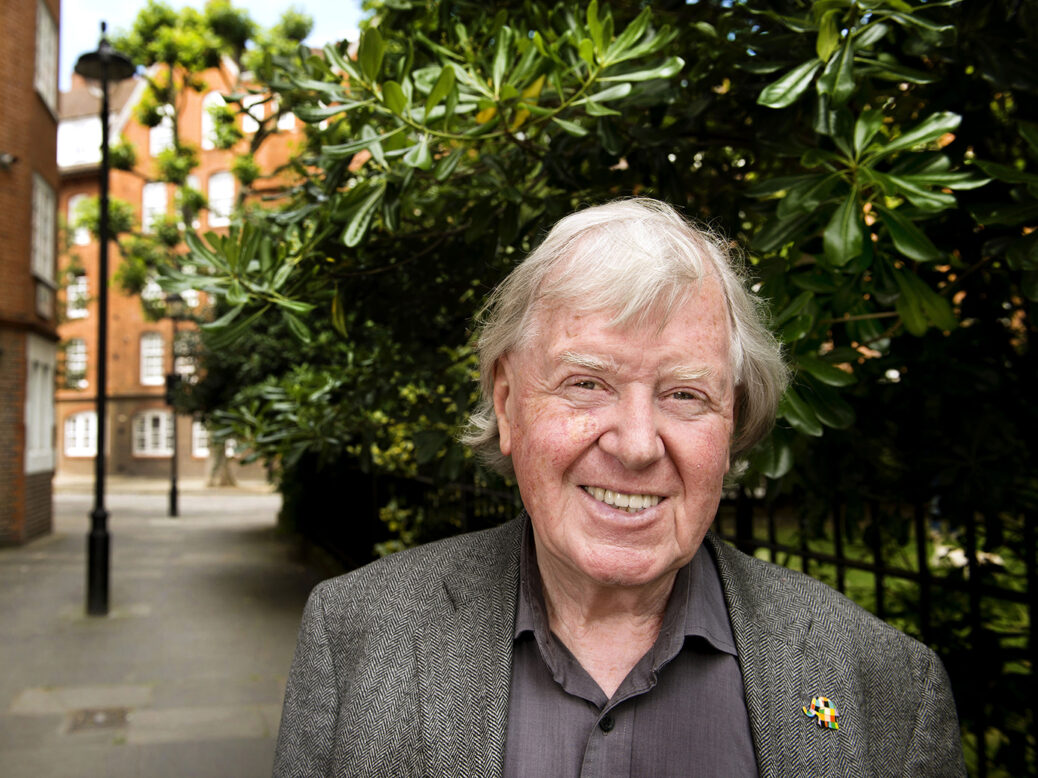
An executive once warned David McKee that one of his projects – an album based on the music from his 1970s animated children’s TV series Mr Benn – would not make any money. McKee said money wasn’t important. The important thing was to leave a trace.
The creator of Mr Benn and Elmer died on 6 April at the age of 87. But traces of his art remain all around us. There’s a chap on Twitter who tweets – very convincingly – as Mr Benn, taking Mr Benn’s courtesy and kindness into one of the most snarky areas of the internet and brightening the place, just as the original man from 52 Festive Road took courtesy and kindness into the Wild West, onto pirate ships and off into space. Twitter Mr Benn once observed that the man from number 51 looked like Cat Stevens. Cat Stevens replied!
As sophisticated teenagers we also noticed Mr Benn’s neighbour, but thought he looked more like Carlos the Jackal. We consumed the show in a sarky, smart-alec, teenage way. It was “obviously” about drugs. Hence the shopkeeper’s fez.
Mr Benn was more than entertaining – it was fascinating. Why did Mr Benn look like someone who’d escaped from a Magritte? Or from A Clockwork Orange? Most children’s shows were – are – about children, or talking animals; why make one about a grown-up in a bowler hat? Most puzzling of all, why did it – does it – have such a hold on us? Was it that brilliant Duncan Lamont soundtrack, and the slightly trippy vibe? Or was it that Mr Benn’s adventures took off from an ordinary street like ours? We were about to become adults – full of bravado but also quietly mourning the passing of our childhoods. Mr Benn was something to hold on to. It reassured us that an adult could still make believe.
McKee was especially good at messing with your idea of what adulthood and childhood were. On one level, Mr Benn is definitely an adult. He owns a house and a bowler hat. But he has no adult responsibilities. King Rollo is definitely a grown-up. He’s got a crown and a beard. But he is functionally a toddler, always on the brink of a tantrum and having to be kept calm by his magician and his cook. The toddler king is either a tremendous joke or a devastatingly accurate prophecy of what would happen to leadership in the West.

McKee’s message was always kindness and patience. Everyone who worked with him talks about his generosity, humility and curiosity. He had no interest in technology, but when Twitter Mr Benn asked permission to use the character, he was fascinated and charmed. The massively successful Elmer – his picture book about an unusual colourful elephant, which spawned sequels, a TV series and countless toys – is a vivid patchwork banner for tolerance. So it’s always a surprise to remember that McKee wrote one of the angriest and most disturbing children’s books ever in Not Now, Bernard.
Bernard is being threatened by a monster but can’t get his parents’ attention. They just keep saying “Not now, Bernard!”. In the end – spoiler alert – the monster eats Bernard, but his parents don’t notice. They simply put the monster to bed in his stead. In an updated version from 2020 the parents are distracted not – as in the original – by everyday busy-ness but by their mobile phones. The monster’s last line, “But I’m a monster”, is hilarious, of course, but it’s also the line that stays with you. Ignore children and you inherit monsters.
McKee never sought praise. But a country that undervalues his genius while giving a knighthood to Gavin Williamson might want to think about that monster. McKee left traces of kindness everywhere. But he also left a warning.





